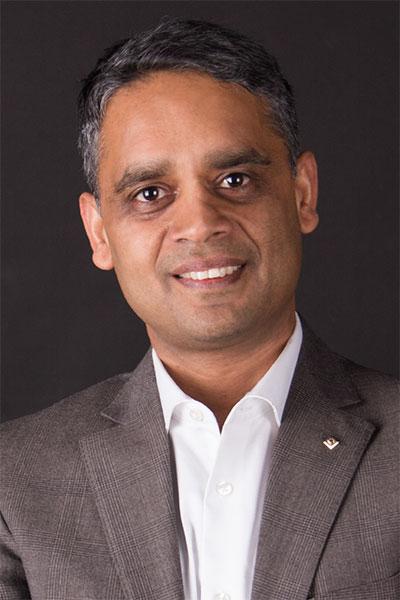Virtual Dist. Lecture-Wireless Systems Design in the Beyond 5G Era: Promises of Deep Learning and Deep Reinforcement Learning
Just 2 days left to register!!
Optimal resource allocation is a fundamental challenge for dense and heterogeneous wireless networks with massive wireless connections. Because of the non-convex nature of the optimization problems, often it is computationally demanding to obtain the optimal resource allocation. Machine learning, especially Deep learning (DL), is a powerful tool where a multi-layer neural network can be trained to model a resource management algorithm using network data. Therefore, resource allocation decisions can be obtained without intensive online computations which would be required otherwise for the solution of resource allocation problems. Recently, deep reinforcement learning (DRL) has emerged as a promising technique in solving non-convex optimization problems. Unlike deep learning (DL), DRL does not require any optimal/near-optimal training dataset which is either unavailable or computationally expensive in generating synthetic data. In this talk, I shall present a supervised DL-based as well as a centralized DRL-based downlink power allocation scheme for a multi-cell system intending to maximize the total network throughput. Specifically, I shall discuss a deep Q-learning (DQL) approach to achieve near-optimal power allocation policy. I shall present some simulation results to compare the proposed DRL-based power allocation scheme with the conventional schemes in a multi-cell scenario.
Date and Time
Location
Hosts
Registration
-
 Add Event to Calendar
Add Event to Calendar
Speakers
 Dr. Ekram Hossain of University of Manitoba
Dr. Ekram Hossain of University of Manitoba
"Wireless Systems Design in the Beyond 5G Era: Promises of Deep Learning and Deep Reinforcement Learning"
Optimal resource allocation is a fundamental challenge for dense and heterogeneous wireless networks with massive wireless connections. Because of the non-convex nature of the optimization problems, often it is computationally demanding to obtain the optimal resource allocation. Machine learning, especially Deep learning (DL), is a powerful tool where a multi-layer neural network can be trained to model a resource management algorithm using network data. Therefore, resource allocation decisions can be obtained without intensive online computations which would be required otherwise for the solution of resource allocation problems. Recently, deep reinforcement learning (DRL) has emerged as a promising technique in solving non-convex optimization problems. Unlike deep learning (DL), DRL does not require any optimal/near-optimal training dataset which is either unavailable or computationally expensive in generating synthetic data. In this talk, I shall present a supervised DL-based as well as a centralized DRL-based downlink power allocation scheme for a multi-cell system intending to maximize the total network throughput. Specifically, I shall discuss a deep Q-learning (DQL) approach to achieve near-optimal power allocation policy. I shall present some simulation results to compare the proposed DRL-based power allocation scheme with the conventional schemes in a multi-cell scenario.
Biography:
Ekram Hossain (F’15) is a Professor in the Department of Electrical and Computer Engineering at University of Manitoba, Canada. He is a Member (Class of 2016) of the College of the Royal Society of Canada. Also, he is a Fellow of the Canadian Academy of Engineering. Dr. Hossain's current research interests include design, analysis, and optimization beyond 5G/6G cellular wireless networks. He was elevated to an IEEE Fellow “for contributions to spectrum management and resource allocation in cognitive and cellular radio networks". To date, his research works have received 31,100+ citations (in Google Scholar, with h-index = 91). He received the 2017 IEEE ComSoc TCGCC (Technical Committee on Green Communications & Computing) Distinguished Technical Achievement Recognition Award “for outstanding technical leadership and achievement in green wireless communications and networking”. Dr. Hossain has won several research awards including the “2017 IEEE Communications Society Best Survey Paper Award” and the “2011 IEEE Communications Society Fred Ellersick Prize Paper Award”. He was listed as a Clarivate Analytics Highly Cited Researcher in Computer Science in 2017, 2018, and 2019. Currently he serves as the Editor-in-Chief of IEEE Press and an Editor for the IEEE Transactions on Mobile Computing. Previously, he served as the Editor-in-Chief for the IEEE Communications Surveys and Tutorials (2012-2016). He is a Distinguished Lecturer of the IEEE Communications Society and the IEEE Vehicular Technology Society. Also, he is an elected member of the Board of Governors of the IEEE Communications Society for the term 2018-2020.
Address:Winnipeg, Manitoba, Canada

